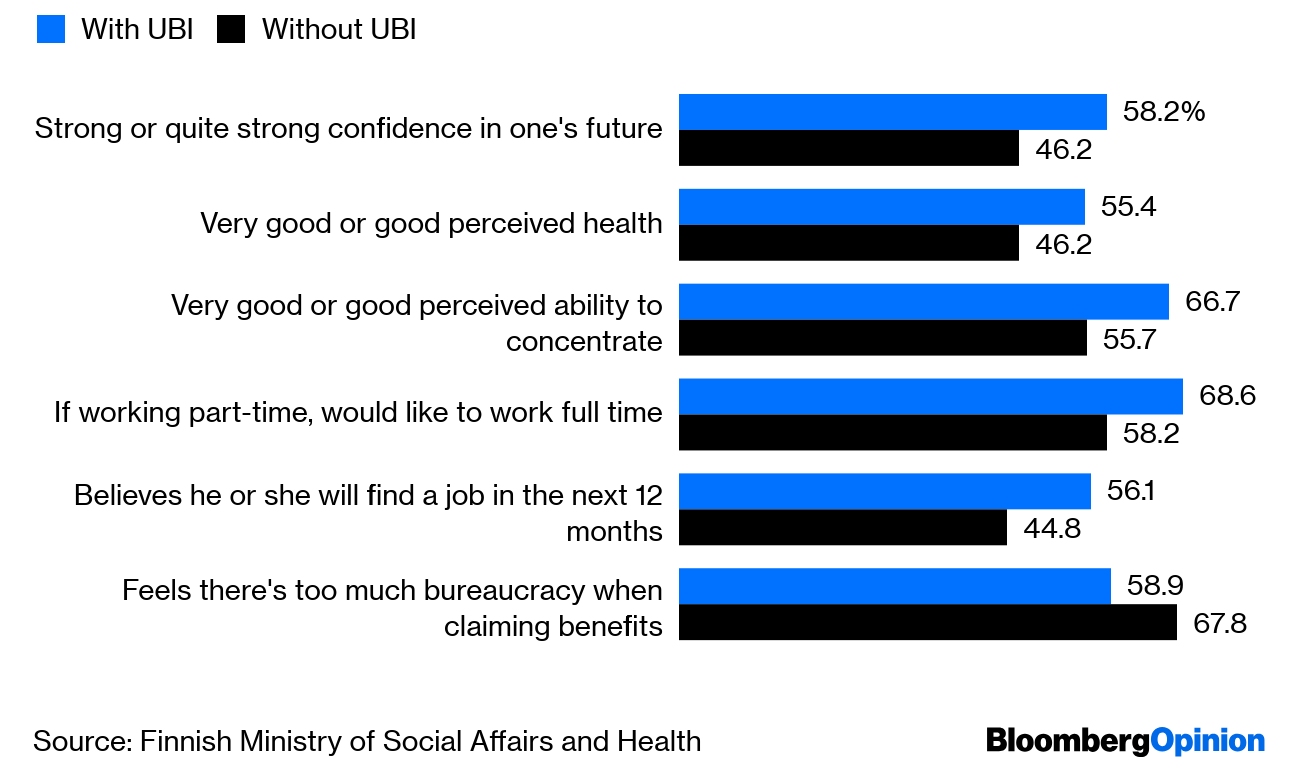Between 2017 and 2018, Finland ran the world’s most robust universal basic income (UBI) experiment ever. Two thousand people experiencing unemployment throughout the country received between 25 and 58 monthly payments of $600 from the government. No conditions or means testing were imposed and no instructions or requirements given on how to use the money.
This week, the Social Insurance Institution of Finland announced that those receiving basic income payments reported better financial well-being, mental health, and confidence in the future compared to a control group receiving traditional unemployment benefits. Those receiving the UBI payments also worked an average of six more days than those receiving unemployment benefits. The increase in employment was particularly significant among families with children.
Despite the promising results, the study did leave room for skepticism. In the middle of the study, the Finnish government implemented an “activation model” making the requirements for qualifying for unemployment benefits stricter. As such, the study can only confidently conclude that UBI was effective when packaged with stricter unemployment rules. After the first year of the study, preliminary results showed no difference between UBI and traditional unemployment benefits.

While more studies certainly need to be conducted, these findings are promising for UBI’s efficacy at combating poverty and economic inequality amidst increasing automation. They also offer insight into how to overcome the groundswell of unemployment worldwide as a result of COVID-19.
Whether or not UBI turns out to be a viable approach to combating poverty across a wide range of contexts worldwide, these unprecedented trials perhaps still represent a turning point in our global conversation about the economy of the 21st century. Just a decade or two ago, even considering UBI would have been labeled radical, even dangerous. Now, UBI – and the need for bold new economic models more generally – is beginning to gain real traction.



